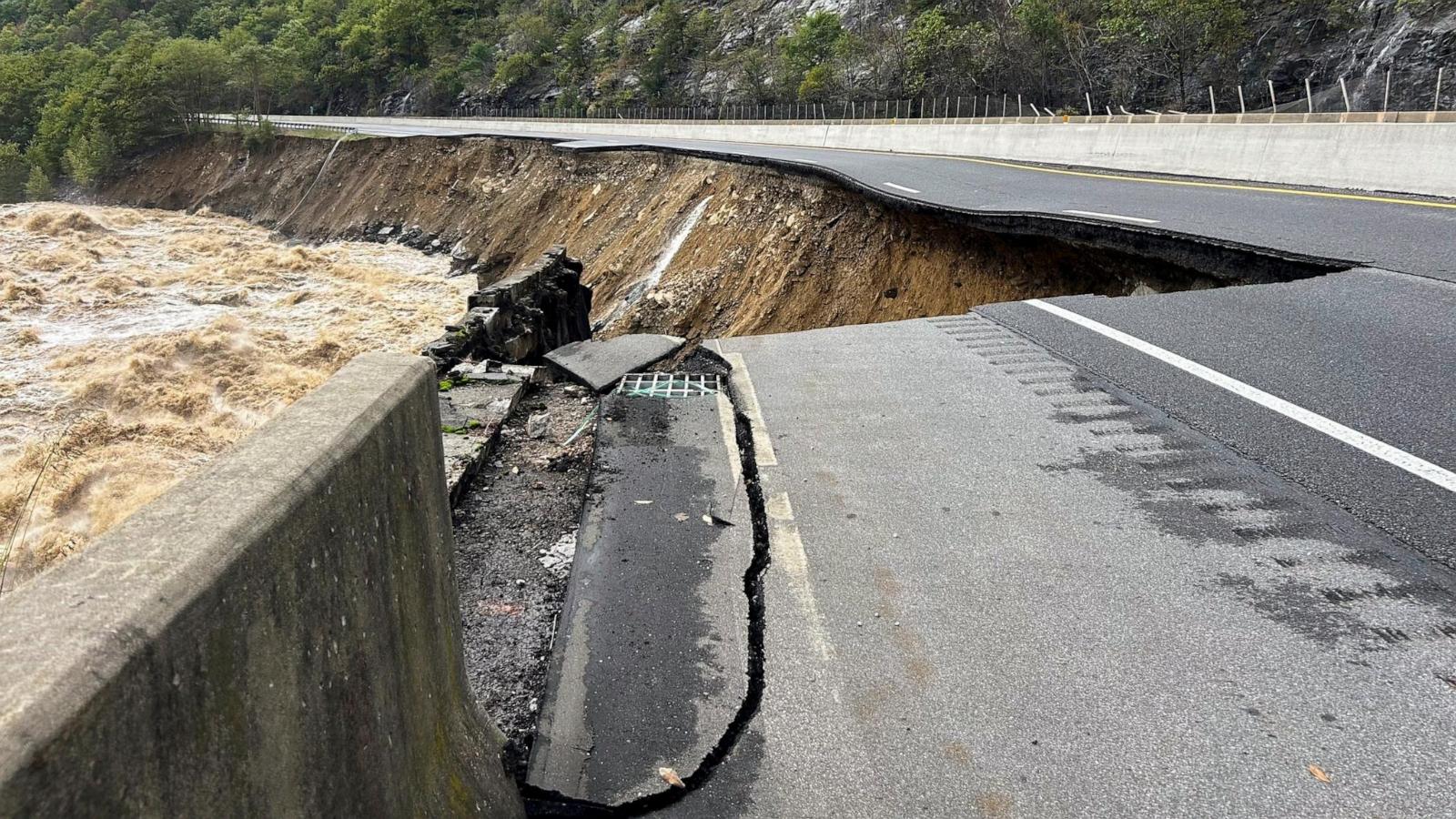I-40 Collapse in North Carolina: Reopening Delayed After Further Asphalt Fall
The much-anticipated reopening of a vital section of Interstate 40 in North Carolina has hit another major snag. Days after crews were optimistic about reopening, more asphalt from the eastbound lanes gave way, further delaying the already long road to recovery from Hurricane Helene's devastation. This unexpected setback has left travelers, locals, and businesses in a state of uncertainty, highlighting the enormous challenge of repairing significant infrastructural damage.
The Unforeseen Setback: More Asphalt Collapses
Initially, crews focused on getting the westbound lanes open for two-way traffic. This was considered a major milestone in restoring vital transportation links between North Carolina and Tennessee. The aim was to re-establish a critical transportation artery severed in late September after torrential rains caused by Hurricane Helene led to a devastating collapse of over a mile of the I-40 eastbound lanes.
Engineers Assess the Damage
However, the recent collapse adds yet another layer of complexity to this arduous restoration project. The North Carolina Department of Transportation (NCDOT) has announced that further assessment is needed before any reopening can be considered. Until engineers are confident about safety conditions in the gorge, all plans for partial reopening are paused.
Impact on Traffic and Commerce
The indefinite closure of this key interstate route presents numerous challenges. Commuters face longer travel times, businesses in the affected area see supply chain issues, and tourists struggle to reach popular destinations. The incident raises concerns about infrastructure resilience in the face of severe weather events.
Unraveling the Cause: Wet Weather and Freeze-Thaw
The NCDOT points to recent wet weather and freeze-thaw cycles as potential contributing factors behind this latest asphalt collapse. This emphasizes how unpredictable and challenging the work environment remains. Contractors had been focused on stabilizing approximately 7 miles of road, with the aim of ensuring the safety of the transportation corridor across the region.
Addressing Stability Issues
The NCDOT is actively working on the situation, deploying specialists to stabilize the damaged section. These efforts involve stabilizing slopes and ensuring that road surfaces have optimal structural integrity.
Weather-Related Complications
The fact that fluctuating weather patterns continue to create issues points to a longer-than-anticipated recovery. The unstable weather makes construction work extremely challenging. Every day the road remains closed carries a greater economic and social cost to the local area, highlighting the challenges involved in dealing with this weather event’s impact on crucial infrastructure.
Looking Ahead: Patience and Perseverance
NCDOT officials expressed their understanding of the public's frustration and inconvenience. They have also emphasized that safety remains their highest priority. They understand that the I-40 corridor is essential to local businesses, local residents, and interstate transportation. The reopening will only be permitted when experts are fully confident that this important section of road can operate safely, ensuring the safety of commuters and those living in the nearby areas.
Projected Timeline
While a precise date for reopening remains uncertain, the recent incident demonstrates the substantial hurdles in the road to recovery. The unexpected setback further extends what was already expected to be an extensive period for repairs.
Continuing Challenges in Recovery
It serves as a potent reminder that Mother Nature continues to have a huge effect on even our most modern, durable, and expensive infrastructural projects. As the state’s leaders navigate these unanticipated complexities, resilience and patience continue to be key to successful recovery.
Beyond I-40: The Broader Impact of Hurricane Helene
Hurricane Helene's impact extends far beyond the I-40 collapse. The hurricane inflicted damage across over 6,900 sites across the state, a substantial testament to the widespread destruction. NCDOT reports that over 1,200 roads have been reopened, showing the scale and complexity of the recovery work.
Statewide Efforts
This statewide undertaking calls for collaborative and organized action from multiple groups. NCDOT has joined forces with numerous partners to navigate the restoration process. From contractors to support agencies, a wide network of people is contributing.
Long-Term Infrastructure Resilience
This crisis necessitates a broader reflection on infrastructural preparedness. Discussions are already underway regarding solutions that may increase infrastructure resilience, mitigating the severity and potential impact of future major weather events.
Take Away Points
- The reopening of I-40 has been further delayed due to an unexpected additional asphalt collapse.
- The NCDOT cites wet weather and freeze-thaw conditions as the reason.
- Engineers are conducting safety assessments to determine when the road can be reopened safely.
- The delays impact residents, businesses, and tourism along the route.
- Hurricane Helene caused extensive damage, with ongoing recovery efforts focused on infrastructure resilience across the state.




